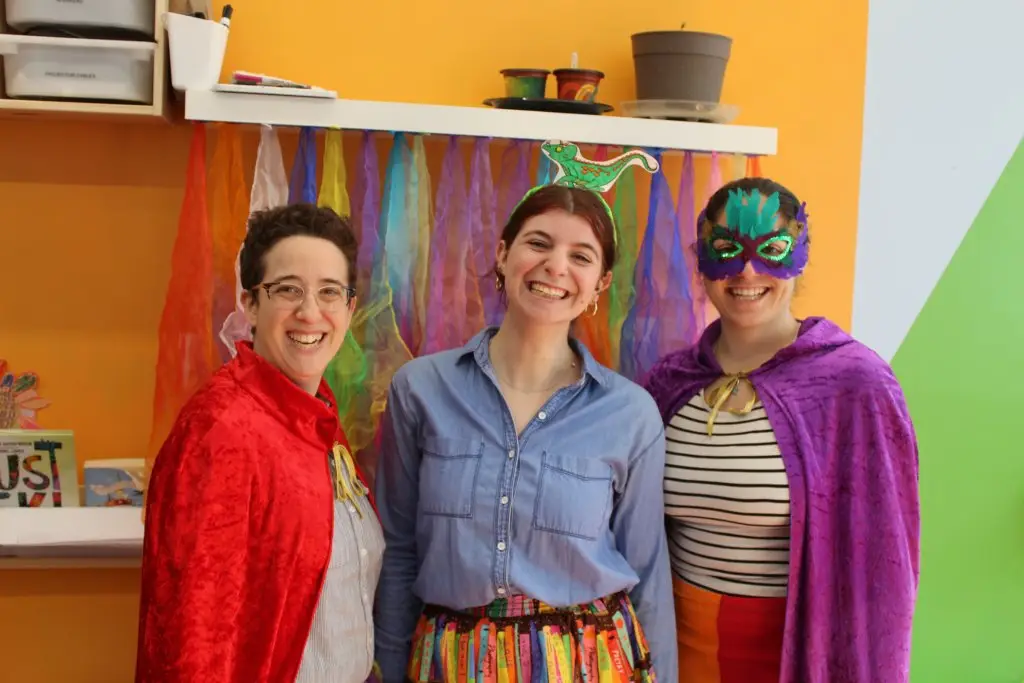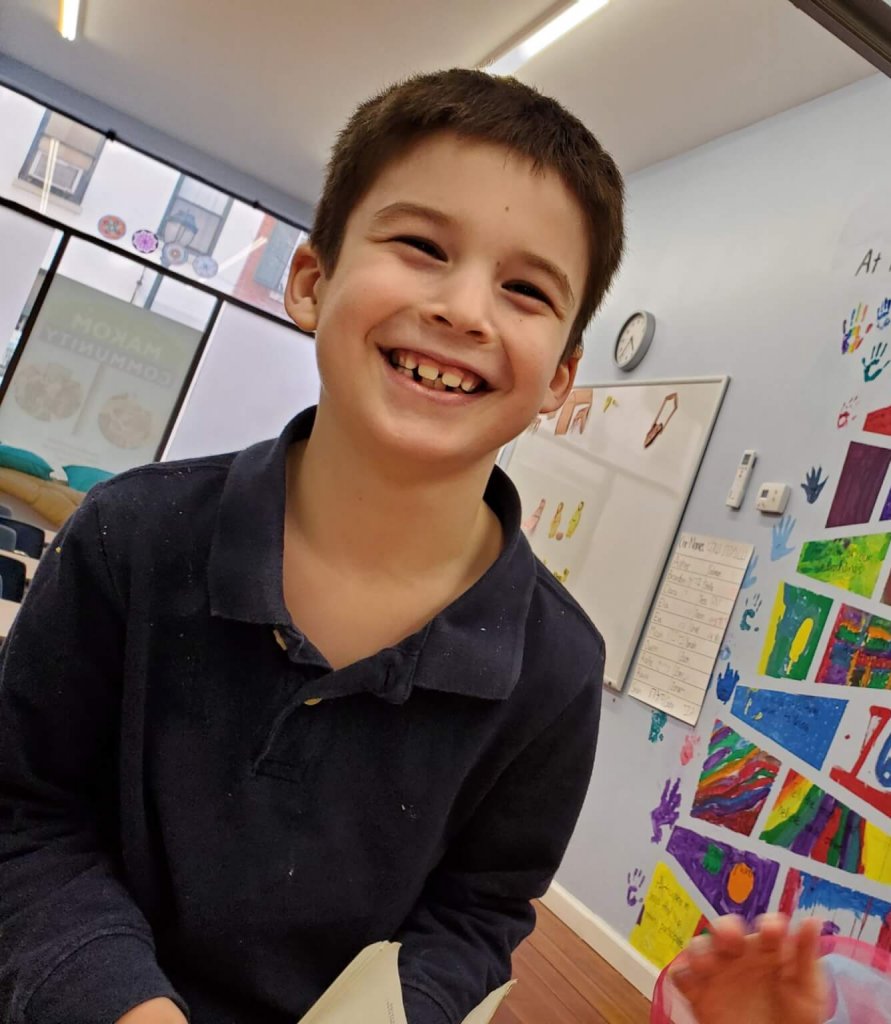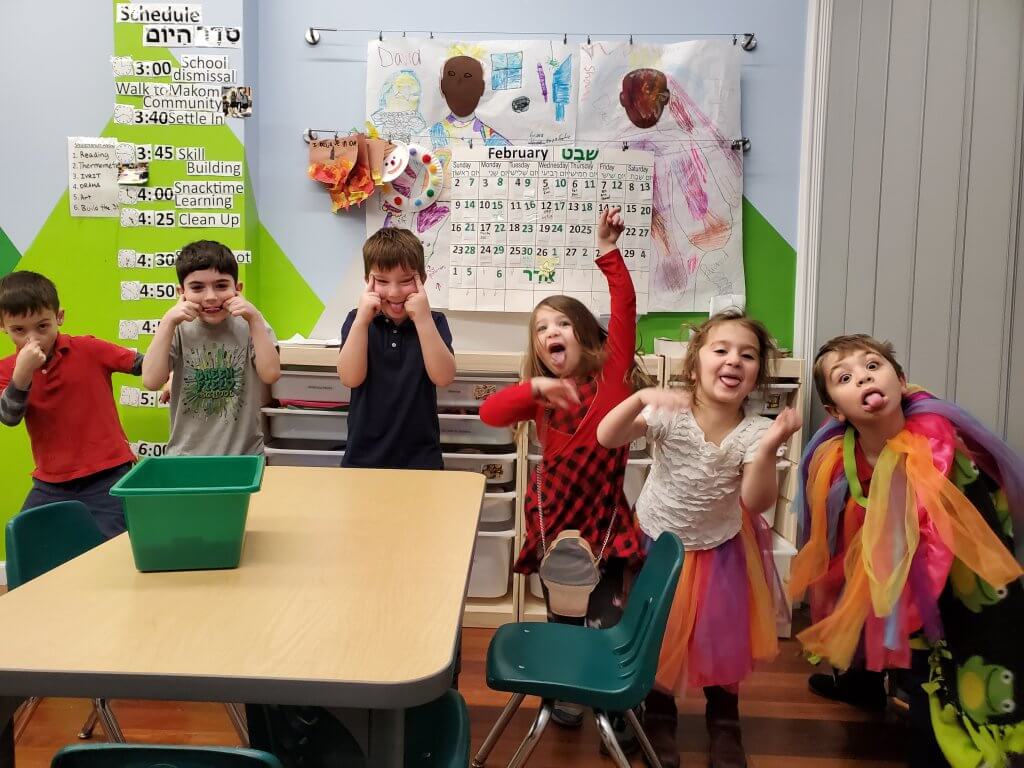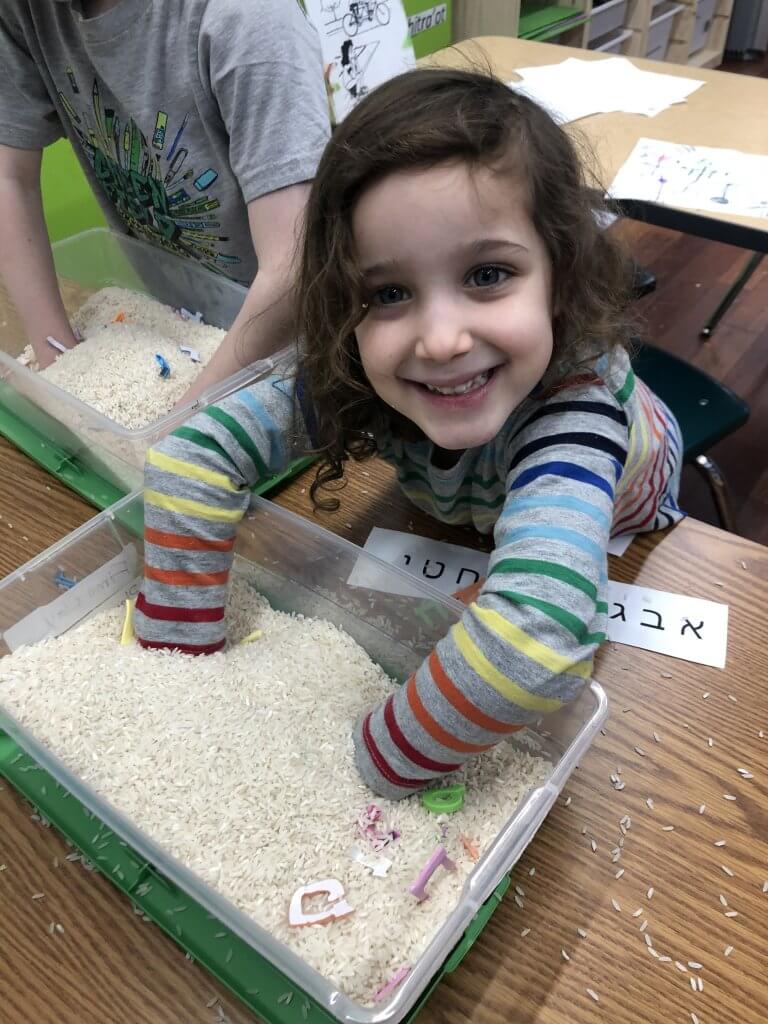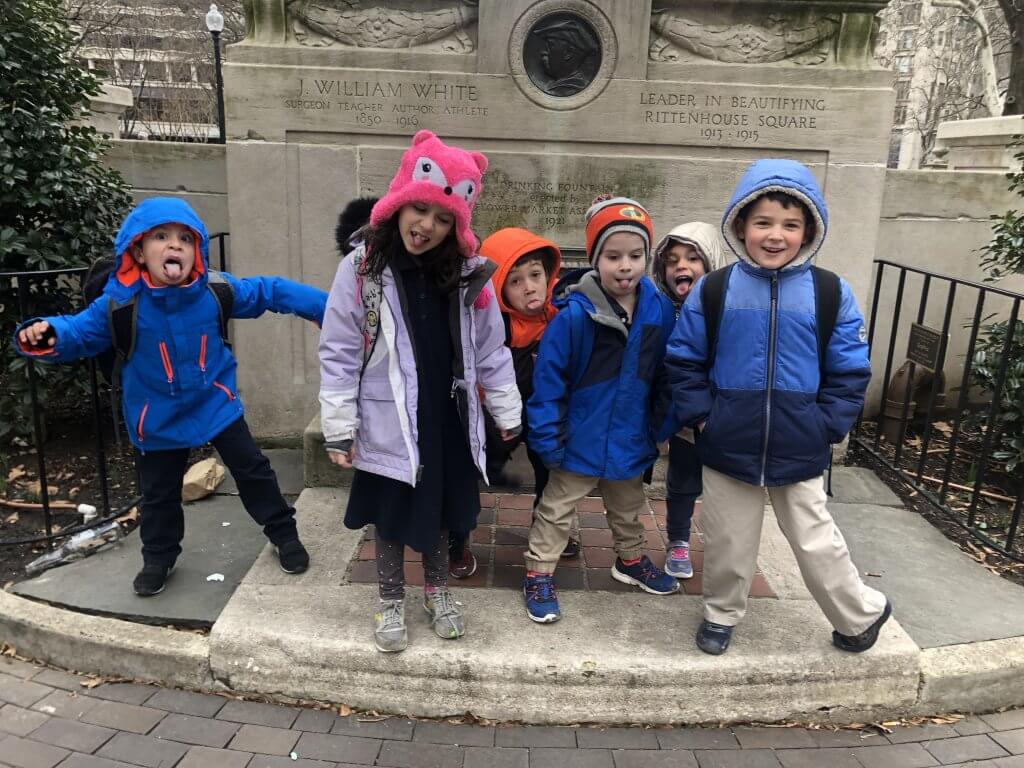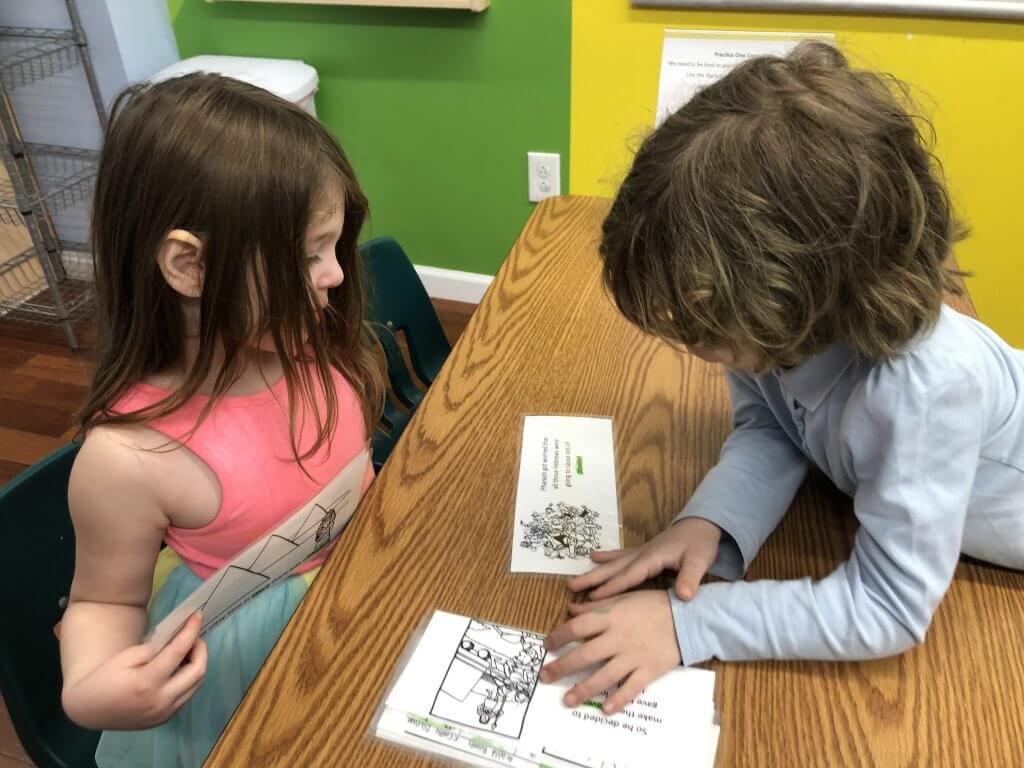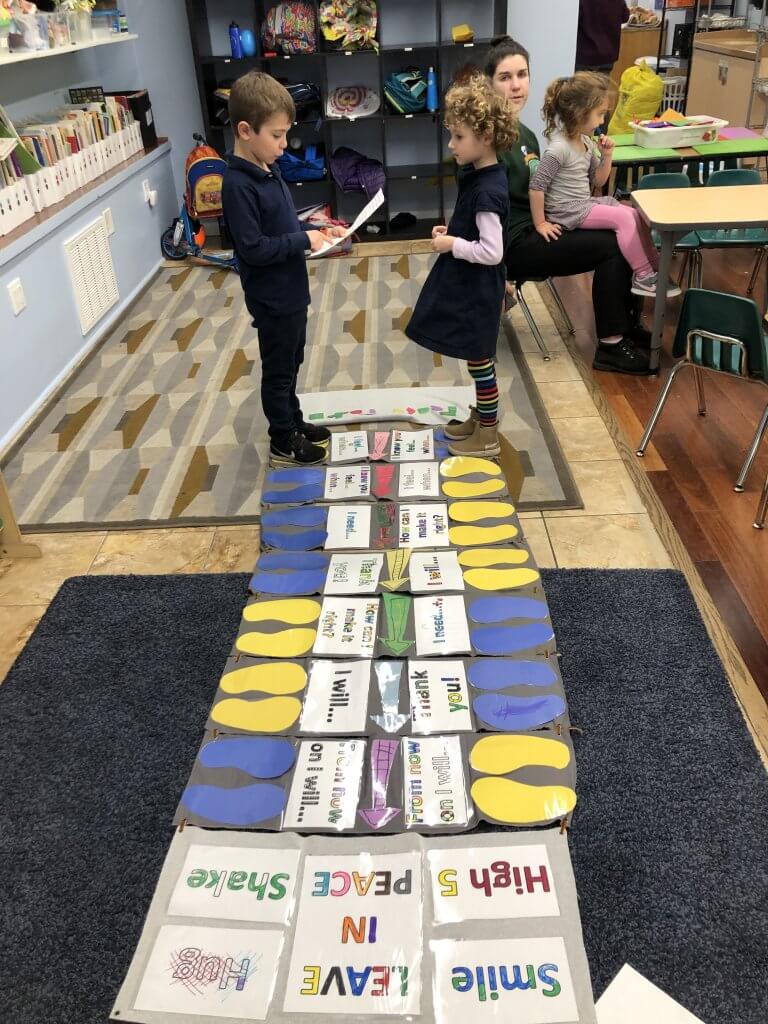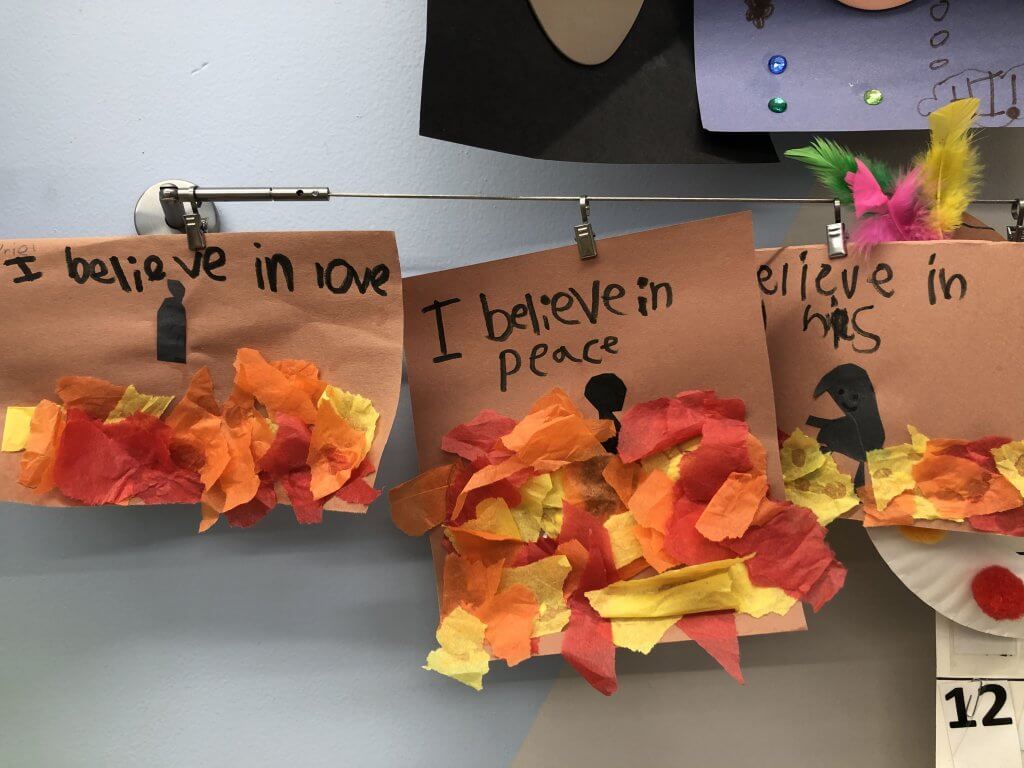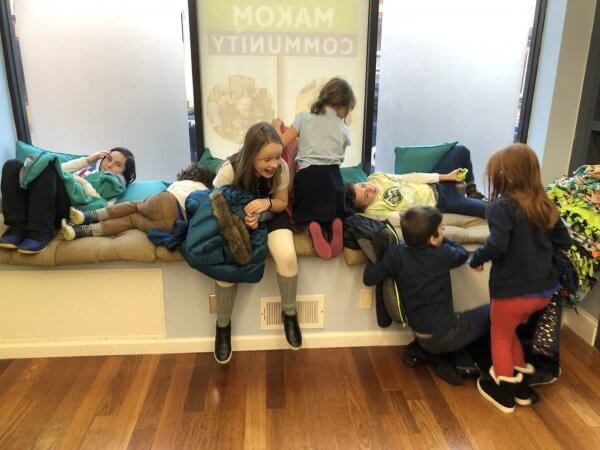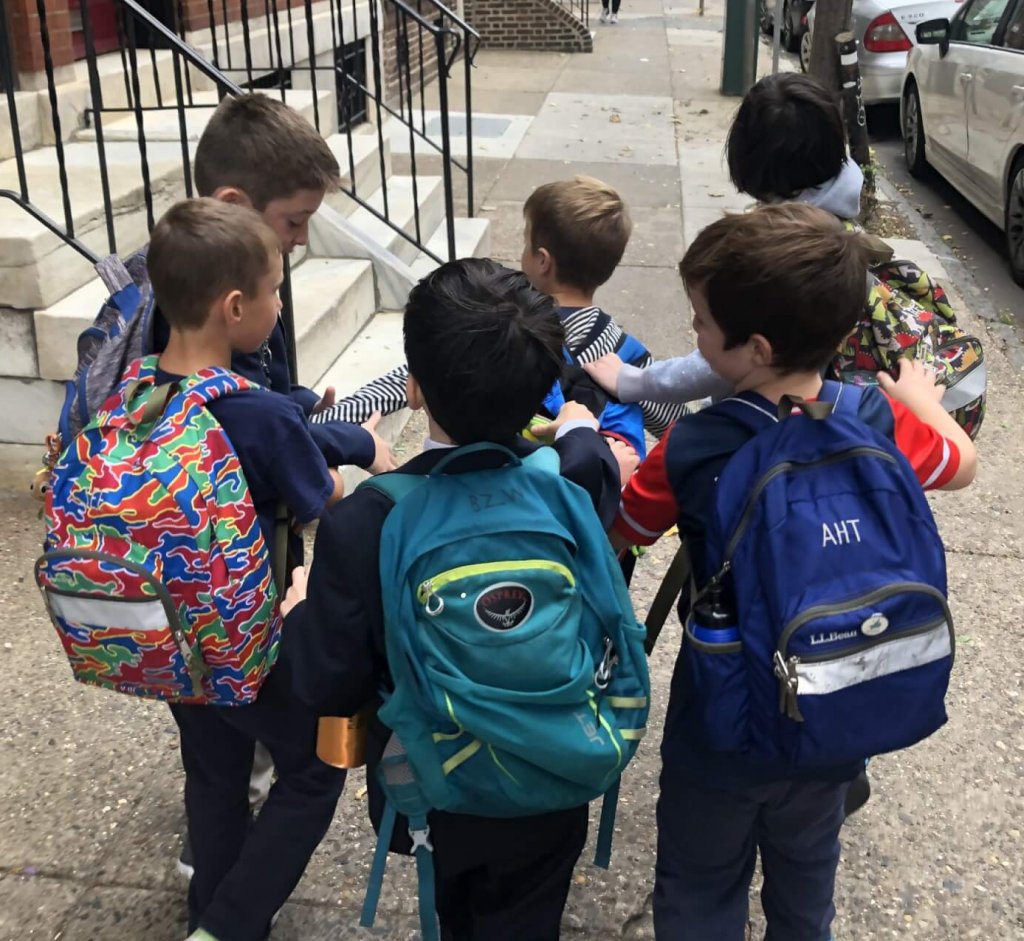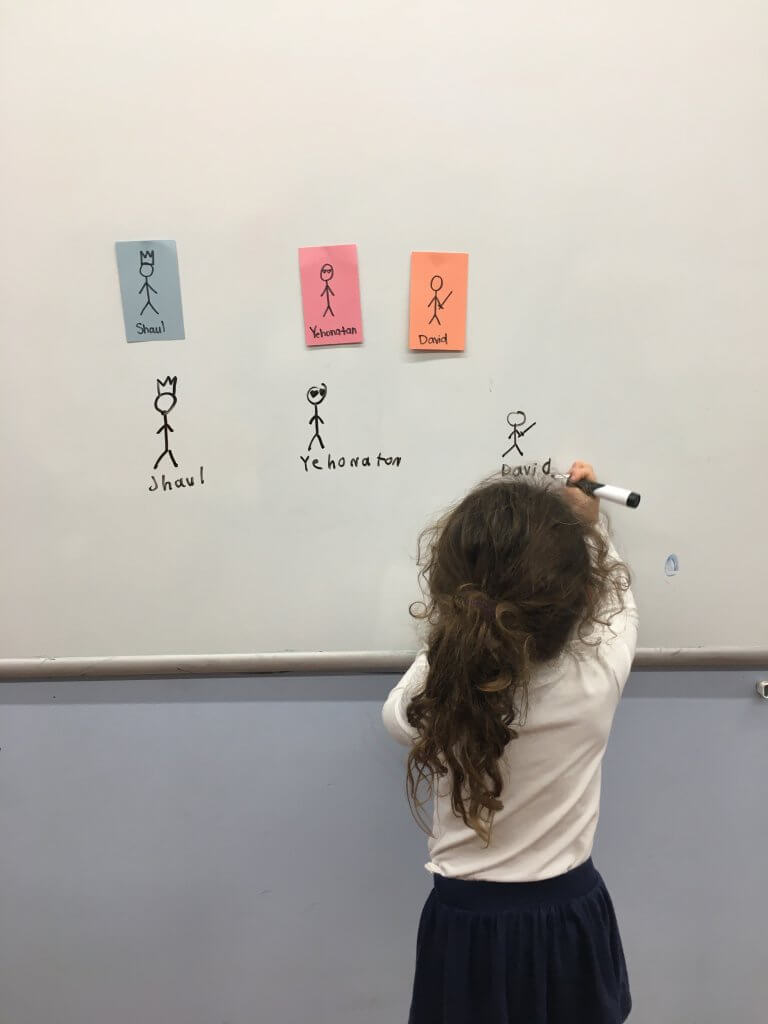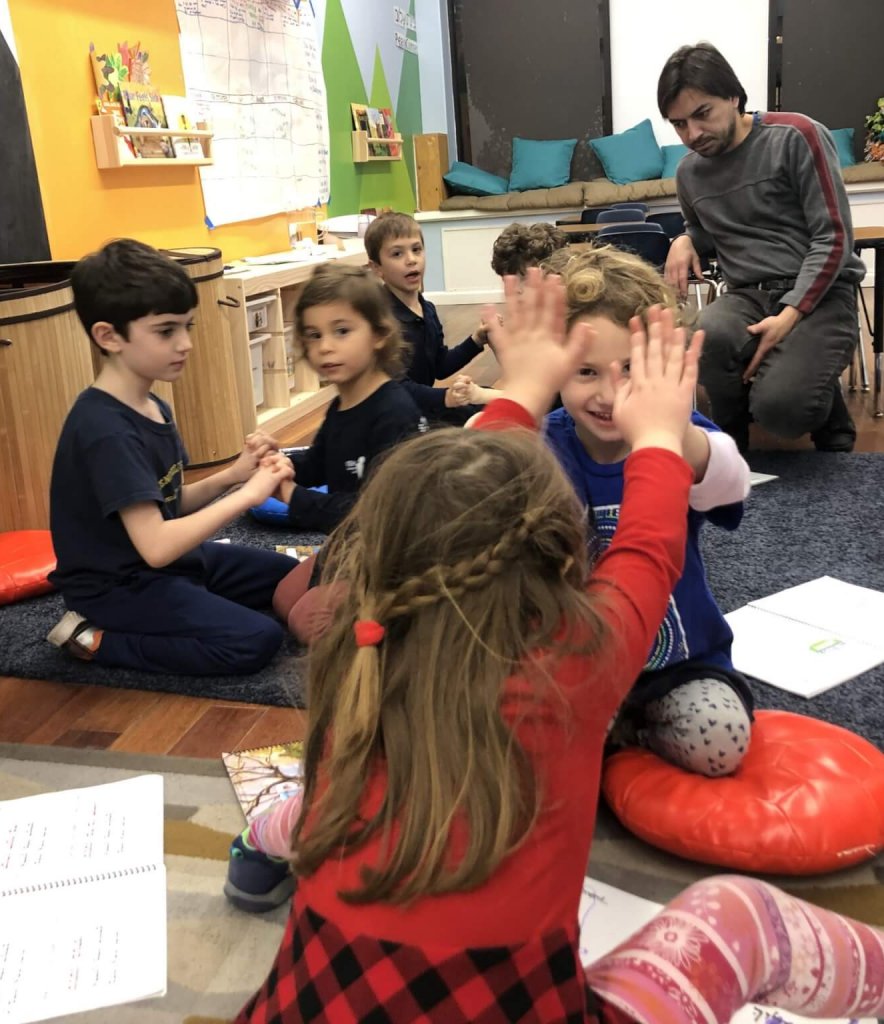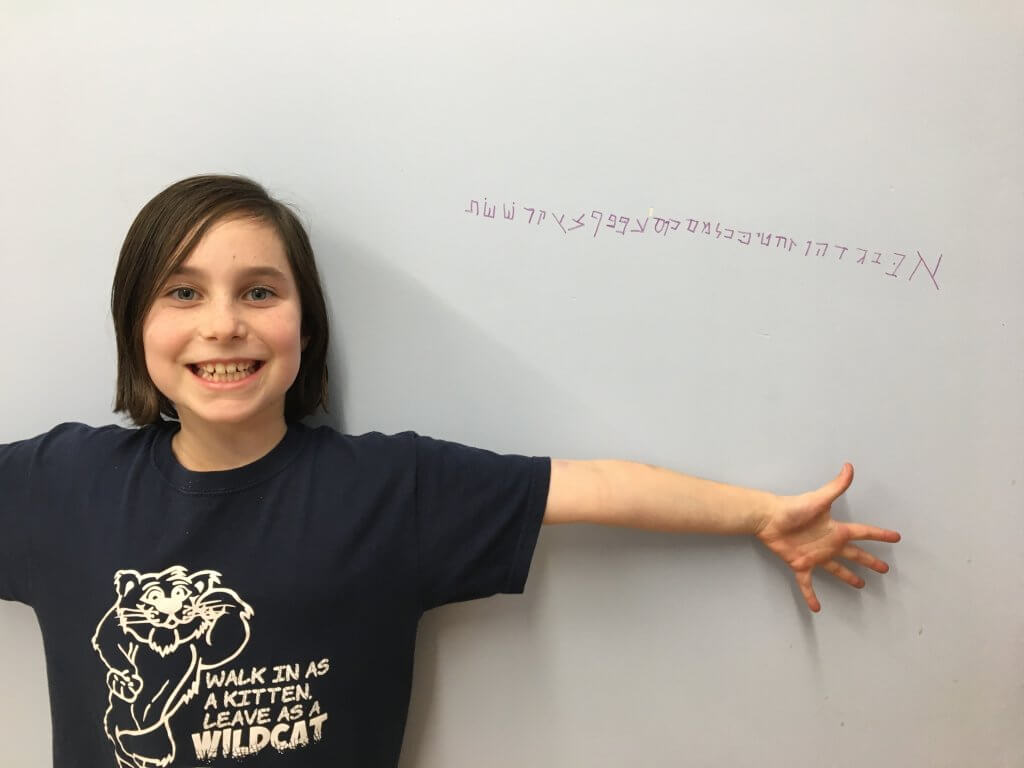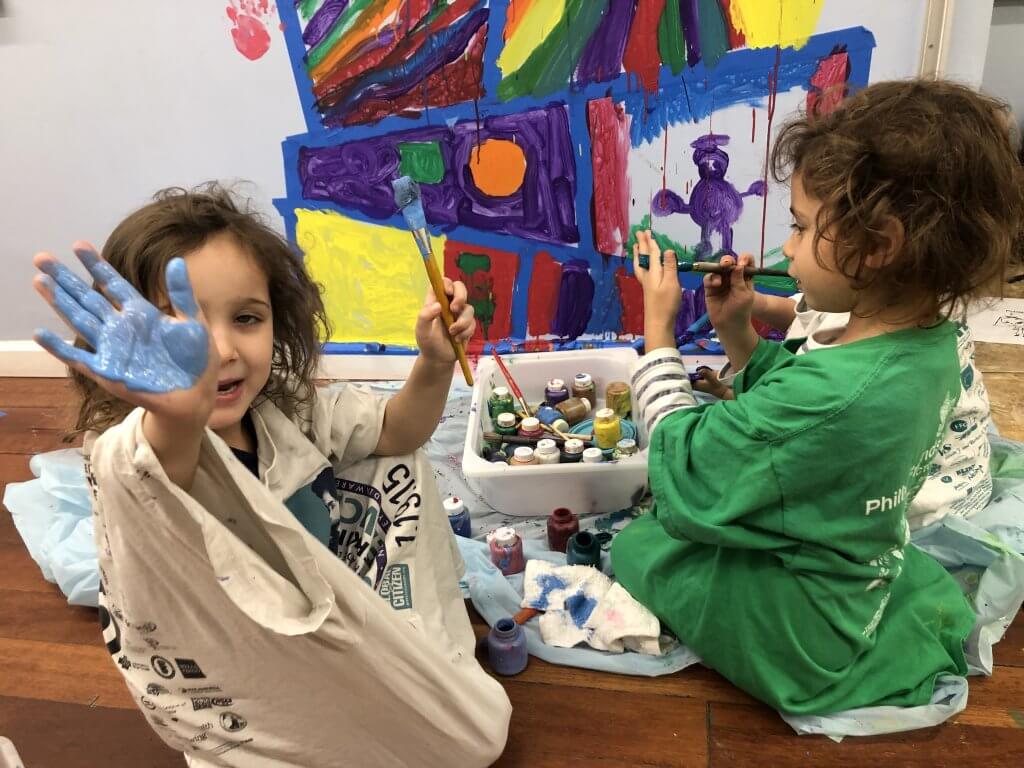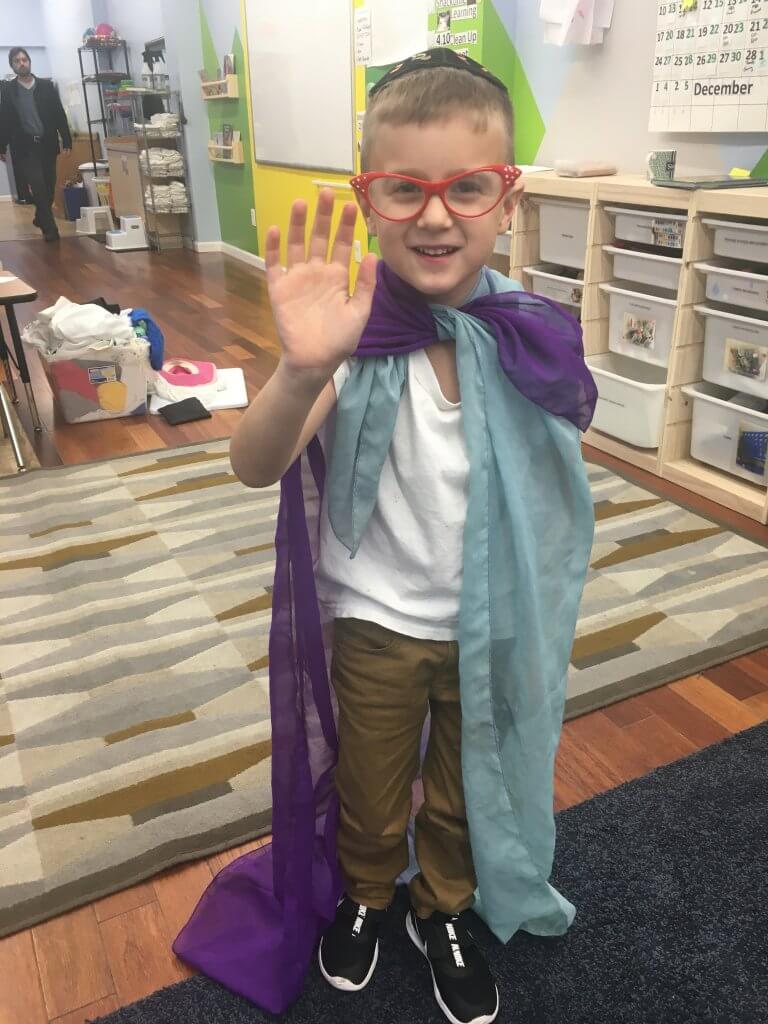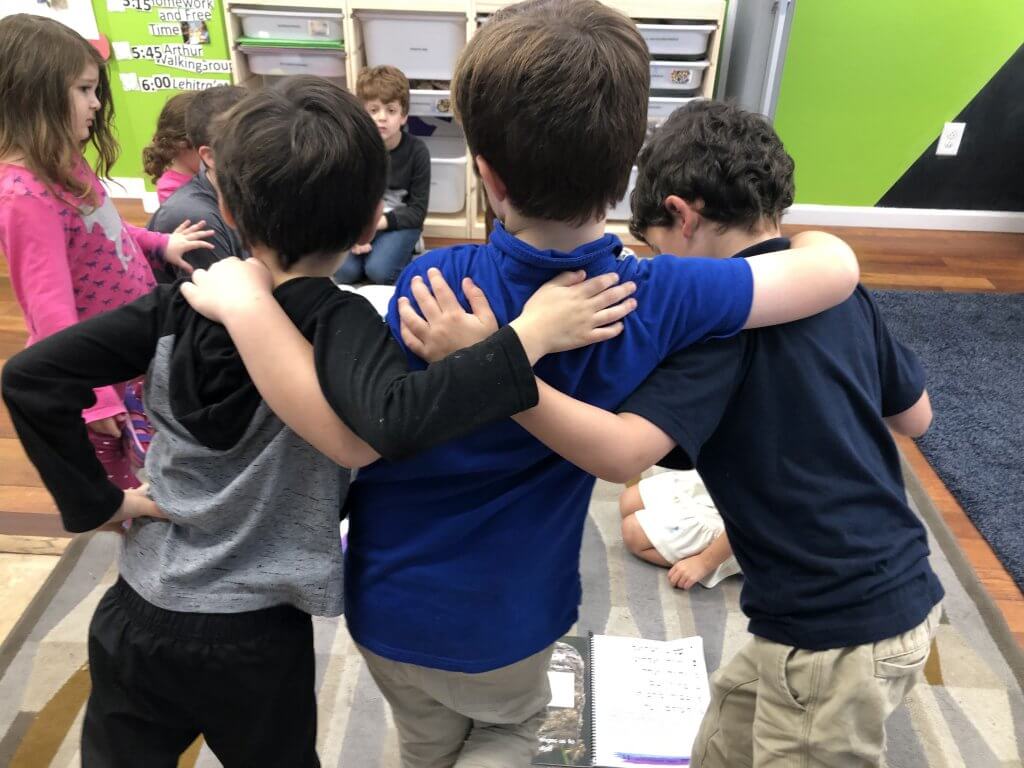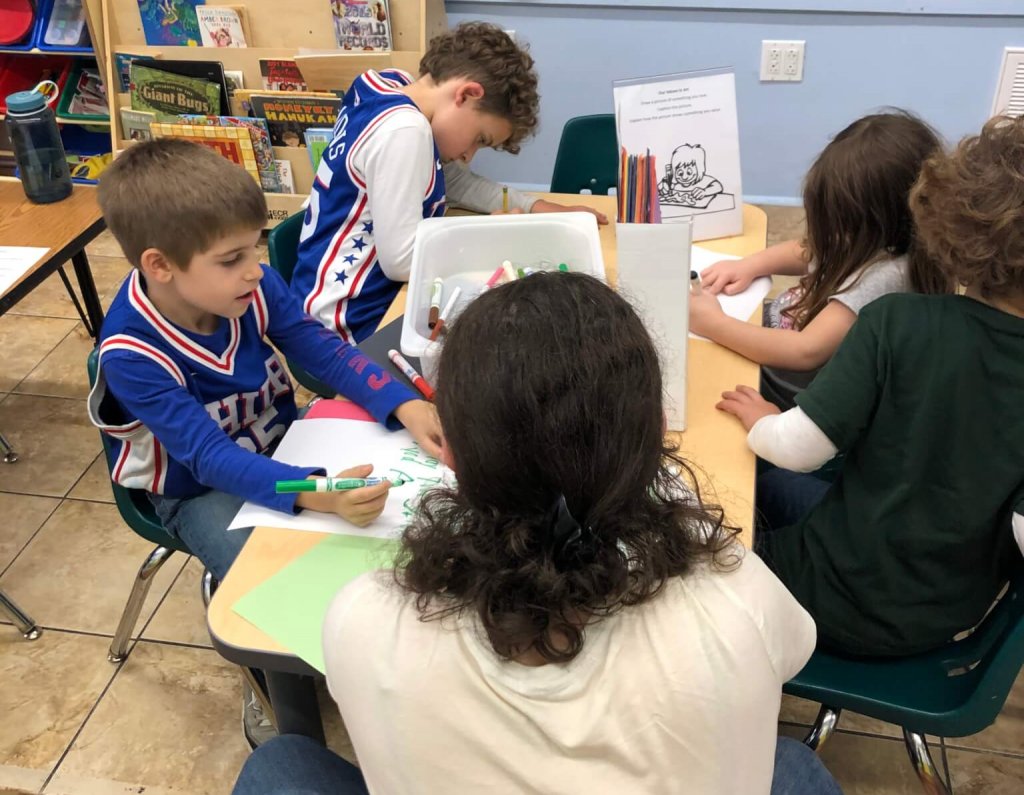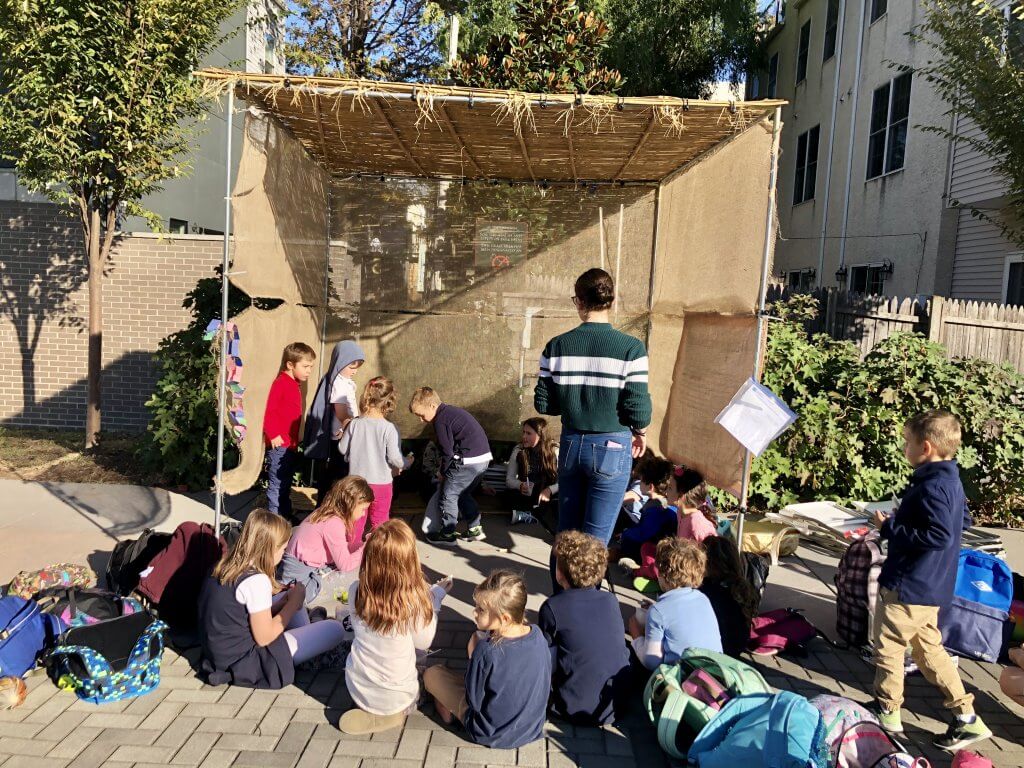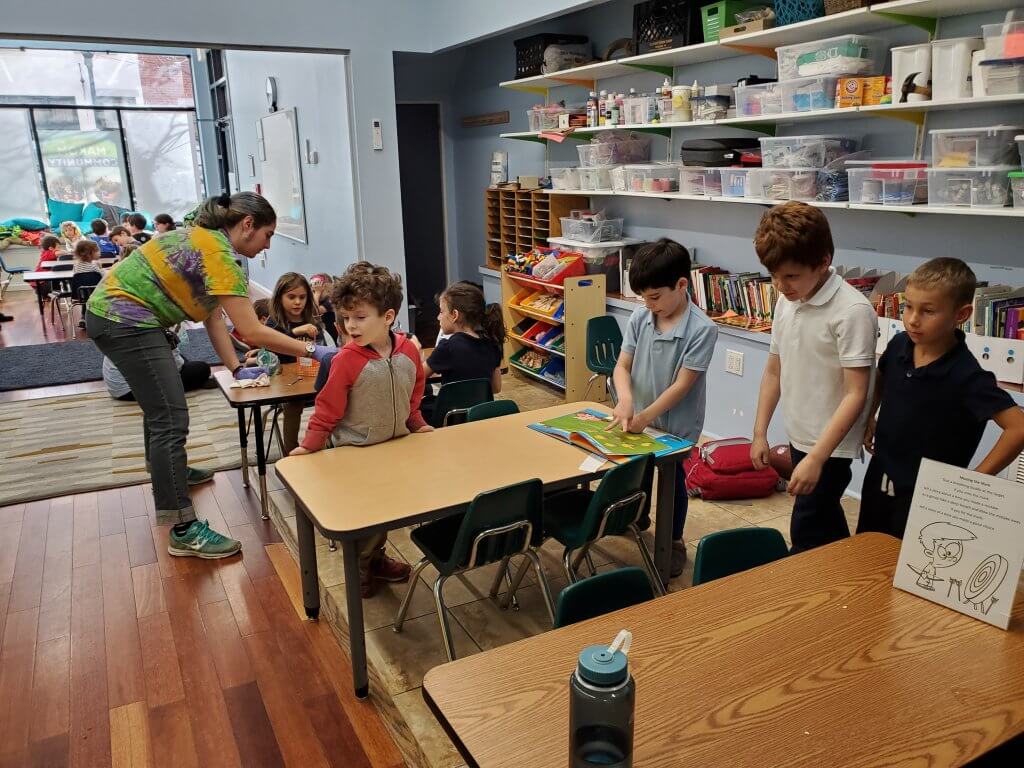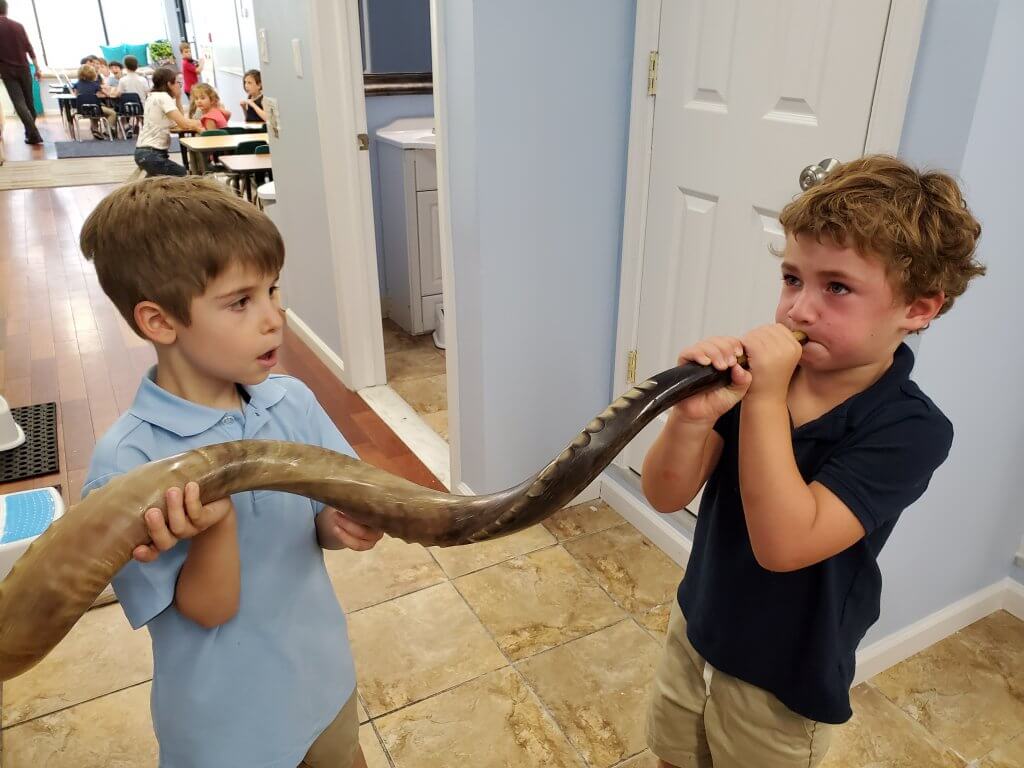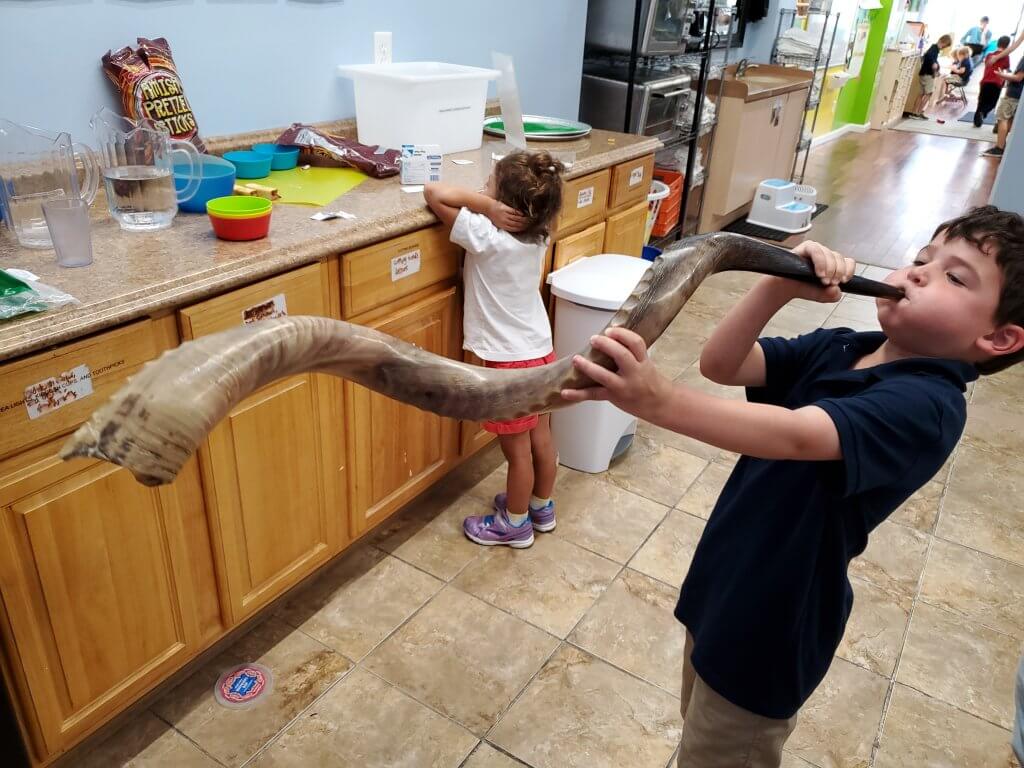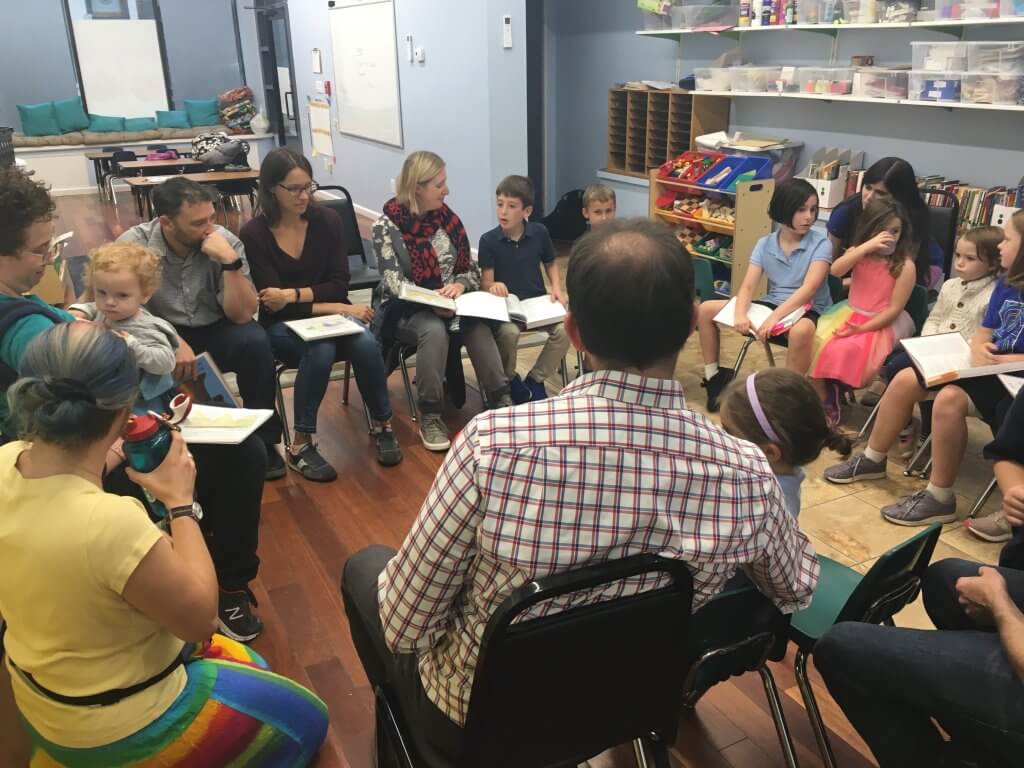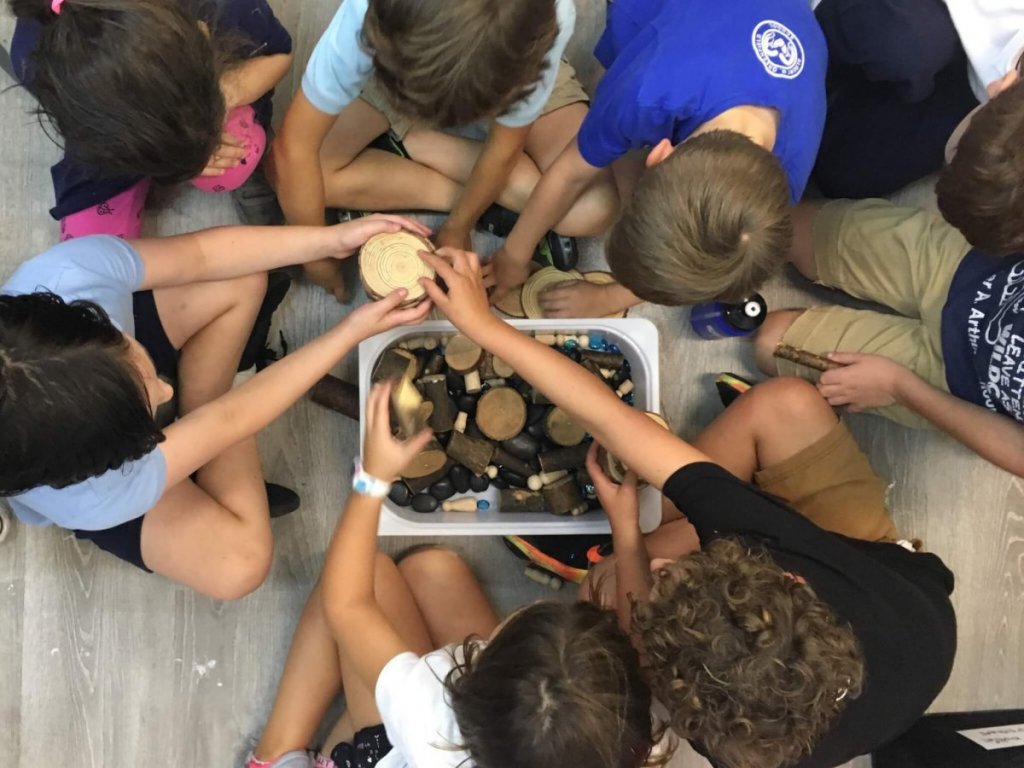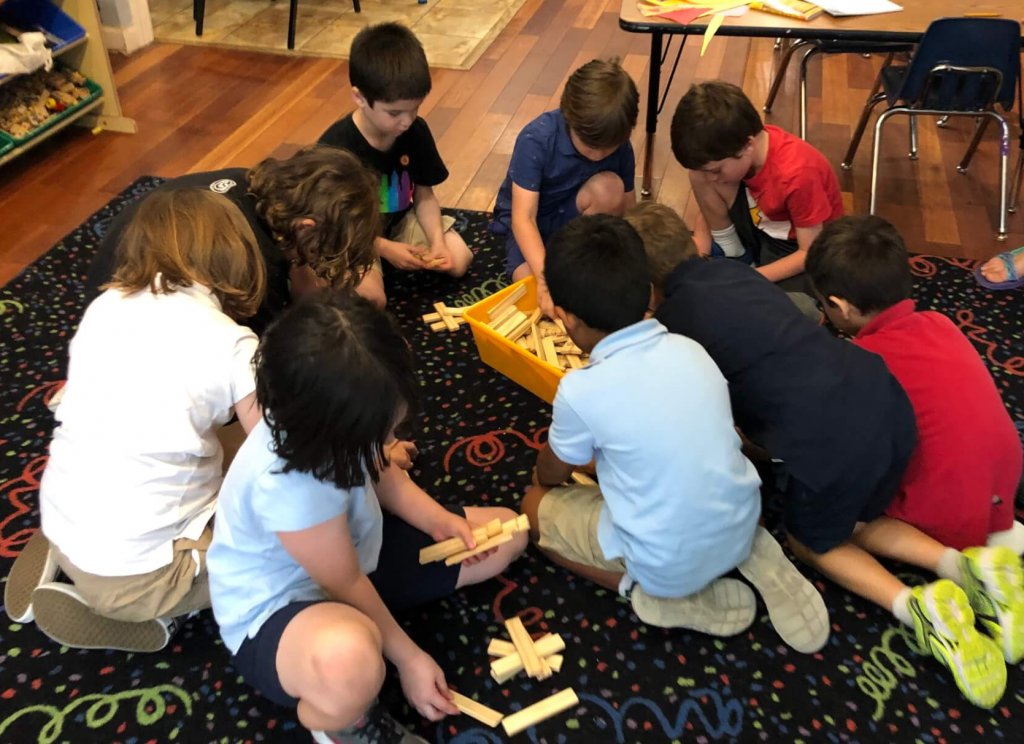Chag Purim Sameach – Happy Purim, everyone! We’ve had an amazing and hilarious time celebrating with your kiddos over the last few weeks. Here’s a recap of all the Purim-related fun we’ve had: Hamantaschen baking These tasty treats are always a crowd pleaser. We enjoyed filling them with all kinds of jam, nutella, and chocolate chips. The traditional triangle shape…
Tag: Afterschool
 Meeting Needs, Increasing Joy
Meeting Needs, Increasing Joy
Around Purim at Makom Community you’re likely to notice us jumping and dancing while singing MisheNichnas Adar marbin besimchah – in the Jewish month of Adar, our joy increases. What can we do to help ourselves feel joyful? One avenue to joy that we explored was getting our needs met. We differentiated between two types of needs: surviving needs and…
 Mishe Mishe Mishe Mishe (Adar is Here!)
Mishe Mishe Mishe Mishe (Adar is Here!)
The time has come: MisheNichnas Adar Marbin Besimchah–when we enter the Jewish month of Adar, our joy is increased! Last week was full of extra silliness in honor of Adar. Ice cream for snack, an afternoon of playing and chalking in the fountain in Rittenhouse, tongue twisters, joke telling, spinning and marching our way through Tefilah: prayer, music, and movement,…
 Our Communities Need Us
Our Communities Need Us
Naomi’s family starts off their story living in Beitlechem. Because of famine, they move to Moav. Do you think they stop being a part of the Beitlechem community when they go? Do you think they fully integrate into a community in Moav while they’re there? Last week we took a deep dive into communities, which ones we’re a part of,…
 Walk and Talk: Relationships to Community
Walk and Talk: Relationships to Community
What communities are Rut and Naomi a part of? What are their relationships like with those communities? This week we’re continuing to use their story to unpack our relationships with our communities. Want some ideas of questions to chat about with your kiddos? Read on to discover! At the beginning of the story, Naomi, Elimelech, and their two sons go…
 How We Take Care of The Ger (Other)
How We Take Care of The Ger (Other)
Why would the Torah repeat the same mitzvah (commandment) 36 times? That’s so many times! Maybe because it’s really important. Maybe because people are really bad at following it. Or both. Both is good. The Torah reminds us over and over again to treat gerim (strangers/others) well. Let’s find out what that has to do with the story from the…
 Giving, Getting, and Responding to Bad Advice
Giving, Getting, and Responding to Bad Advice
Have you ever given advice that you knew was bad? Have you ever accepted and followed advice that you knew was bad? Why do we do that? Let’s take a look at the last part of the Daniel story we unpacked and see what we learned. The Babylonians are out and the Persians are in. With them comes a new…
 I Believe in a Thing Called Love
I Believe in a Thing Called Love
Things really go south in the Jewish kingdom after Shlomo. People don’t like the next king, so the kingdom splits in two. And then, generations later, King Nebuchadnezzar and the Babylonians come and take over. Many of the Jewish elite are exiled to Babylon, including these four young men: Daniel, Hananiah, Mishael, and Azariah. Let’s see what their experiences and…
 Cut the Baby in Half: Conflict Resolution with King Shlomo
Cut the Baby in Half: Conflict Resolution with King Shlomo
Shlomo is known for being one of the wisest people ever! People came from all over the world to listen to his just decisions and to help them solve their conflicts and difficulties. Last week we unpacked Shlomo’s wisdom about a particularly famous case and extrapolated some great ideas about conflict resolution in general. Take a look at the following…
 David Commentaries Walk and Talk
David Commentaries Walk and Talk
Do you remember what a midrash is? It’s a commentary, a story made up to answer a question about a text. Midrash isn’t just for Torah text! This week we’re learning a few commentaries about David. Check out what we’re exploring below! Two of the midrashim we’re looking at this week explain to us that David couldn’t understand why God…
 Choosing Family with Unconditional Love
Choosing Family with Unconditional Love
Our story this week zooms in on the unique relationship between Shaul’s son Yehonatan and David. They meet after David defeats Goliath, and the text tells us that Yehonatan’s soul becomes bound up with David’s soul. Yehonatan loves David like himself. The two of them make a brit (two-way promise) together. Yehonatan gifts his cloak, sword, belt, and bow to…
 Dear David: 3000 Year-Old Relationship Advice
Dear David: 3000 Year-Old Relationship Advice
Our story this week is a tumultuous one. Shaul is convinced that David is trying to steal the throne from him, so he sets out with 3000 men to hunt David down. Shaul coincidentally wanders into the cave where David is hiding, and David has an opportunity to kill him. Instead, he cuts off the corner of Shaul’s cloak. David…
 Our Case for Hebrew Literacy
Our Case for Hebrew Literacy
Why do we bother learning Hebrew here at Makom Community? Why is it important? How does Hebrew help us access the Jewish text and tradition that forms the foundation of our learning? One answer, provided to me by one of the Garinim (preK and K kiddos), is that it’s about Tefilah: Prayer, Music, and Movement. We sing a lot of…
 Putting People First: The Makom Community Brit
Putting People First: The Makom Community Brit
Way back in September, our learners started exploring the text of Migdal Bavel (the Tower of Babel). Over the course of the last three months we really dug into that text and pulled it apart. We looked to the people in the story for examples of some great ways to treat each other and some not-so-great ways to treat each…
 Bein Adam LeChavero: Loving the Godliness in Everyone
Bein Adam LeChavero: Loving the Godliness in Everyone
Some actions affect our relationship with God. In Hebrew we call those bein adam lamakom (“between a person and God”*). Some actions affect our relationships with other people. Those are called bein adam lechavero (“between a person and their friend”). We looked at some of the actions we do at Makom Community and thought about whether they affect our relationships…
 Peace, Love, and Makom Community
Peace, Love, and Makom Community
There’s a midrash (commentary) that the people who built the Tower of Babel weren’t punished as harshly as the people who lived during the Flood. Those people were destroyed entirely – totally wiped out. The people who built the tower, though, they stayed alive, but had to spread out and speak lots of languages. Why were the consequences for their…
 People First: What do we value?
People First: What do we value?
What’s more valuable: a person or a brick? The answer, according to this week’s text, might surprise you. Do we value people? What actions and choices can we make to show it? This week we explored a midrash (rabbinic exploration of a textual question) that tried to answer the question: what was so bad about the people building the Tower…
 Welcoming and Resilience: A Sukkot Story
Welcoming and Resilience: A Sukkot Story
This Sukkot has been an adventure! We were so excited to spend our afternoons in the fabulous Center City Kehilah community sukkah in Julian Abele park. And then Wednesday it rained. No worries, though; we regrouped and changed the plan. We met up at Makom Community and spent the afternoon practicing our welcoming skills for future days in the sukkah….
 Treating Mistakes with Love
Treating Mistakes with Love
According to a midrash (story that elaborates), the incident of the Tower of Babel led angels to argue with God about the worthwhileness of people. Because of the “ruinous” actions of the people in the story, the angels said to God, “Didn’t the first set of angels speak appropriately before you, that human beings are not worthy of having been…
 Jumping to Conclusions and Choosing Compassion
Jumping to Conclusions and Choosing Compassion
What happens when we jump to conclusions and judge a situation before we get all the details? The text of Migdal Bavel (the Tower of Babel) says that God came down to see the tower that the people were building (Genesis 11:5). Rashi wonders why. Didn’t God already know what was going on without coming down to look? Rashi suggests…
 Walk and Talk: A New Year Blessing
Walk and Talk: A New Year Blessing
Tekiiiiyaaaaa! Do you hear the sound of the shofar? We’ve already been hearing it for a week at Makom Community. Rosh Hashanah is coming up this Monday and Tuesday, and we’ve got some special plans at Makom Community to celebrate. We’ll be enjoying some extra sweet apples-and-honey themed snacks as well as some extra sweet projects and activities. In the…
 On God and Misunderstandings
On God and Misunderstandings
What do we know about God? How does the description of God in the story of Migdal Bavel (the Tower of Babel) add to or challenge our pre-existing understanding? Why does God make people unable to understand each other in this story? How did they respond to their misunderstandings? How do we respond to ours? Read on to find out…
 Diversity of Culture in a Unified Voice
Diversity of Culture in a Unified Voice
What are the benefits of different languages? What are the challenges? What’s good and helpful about people all speaking the same language? These were some of our lines of inquiry as we dove into the first verse of the Migdal Bavel (Tower of Babel) story. The story opens by asserting that “The whole earth had one language and one set…
 The Ups and Downs of Working Together
The Ups and Downs of Working Together
Team work! It’s a great thing, right? Sometimes. Sometimes it’s hard. Sometimes it goes wrong. The people in the story of Migdal Bavel (the Tower of Babel) get together and decide to build a city with a tower that reaches all the way up to the sky. God comes down to take a look at the tower and is not…
 Is It Summer Yet?!
Is It Summer Yet?!
Is it summer yet?! How many days left of school? Are you counting today or not? How many minutes is that? Sound familiar? In your family, are these insistent questions followed by a challenging transition to summer? The whole structure of our kids’ lives changes, and there can be real pain with that shift in reality. Beginning a new school…

